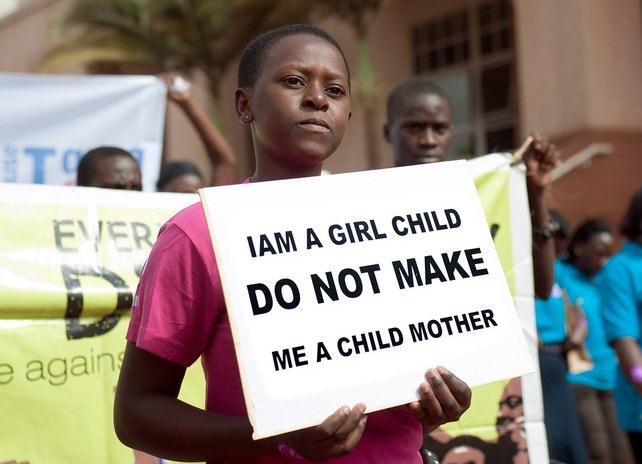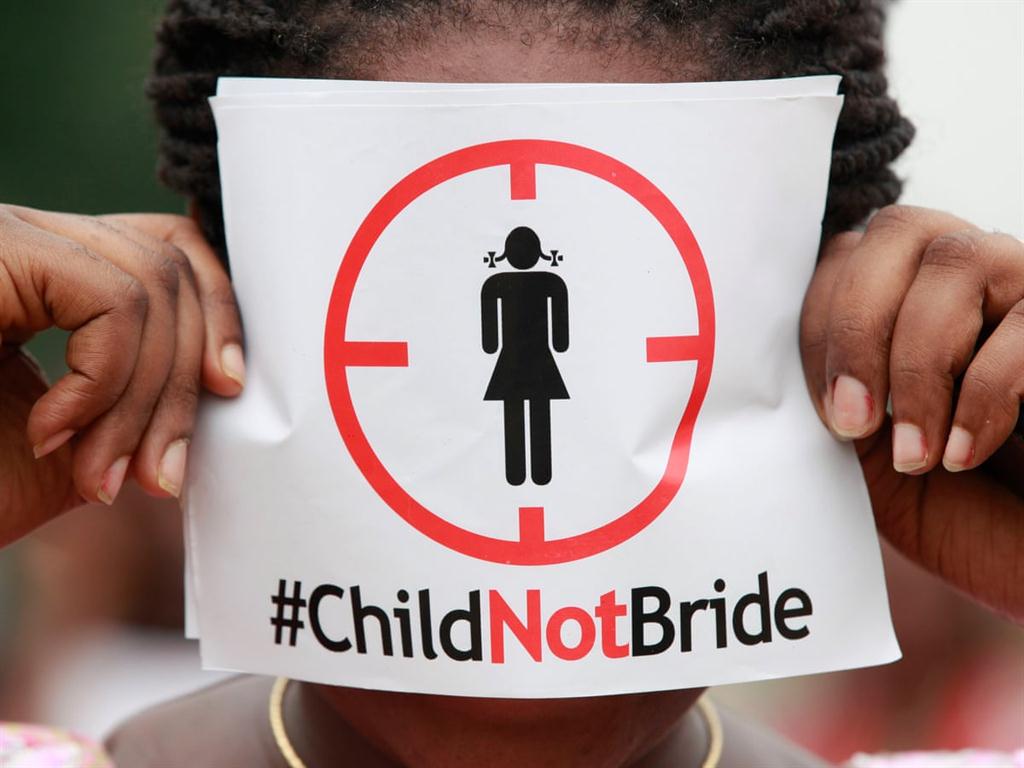Child brides as young as 11
Activist bemoans cultural views that see girls and women treated as possessions, as 18.4% of girls in Namibia are forced into marriage.
JEMIMA BEUKES
WINDHOEK
Women's rights activist Rosa Namises has condemned the commodification of teenage girls being 'sold off' into child marriages by their impoverished families, denying them a right to a childhood.
Namises' criticism comes in the wake of the gender ministry's latest child marriage report, which states that the prevalence of child marriage among girls in Namibia is 18.4%, while that for boys it is considerably lower, at 4.1%.
By region, the highest prevalence of child marriage among girls was reported in the Kavango regions at 39.7%, while Kunene reported 24%, Zambezi 23.8%, Omaheke 23% and Otjozondjupa 22.6%.
The report also states that the sexual debut for adolescent girls in Namibia is between 12 and 17 years.
We have failed
Namises yesterday said these high numbers suggest that women's rights groups have failed in educating communities about the rights of children and women.
She said marginalised communities such as the San and Ovahimba are most at risk because of their deeply-rooted cultural beliefs. “It is a cultural belief that a woman must be sold off or lobola'd off and married into another family, which sees her as a possession. We have not done enough to make an impact and to educate these communities about children's rights and women's rights,” she said. During the launch of the study, gender minister Doreen Sioka said the earliest age of first marriage or cohabitation is estimated at 11 years.
“This is worrisome because the study also found other emerging issues of concern, which includes the high rates of cohabitation among teens and teenage pregnancies. “We need to stop these trends because these are children we are talking about. The state of child marriages in Namibia has not been systematically investigated to fill that gap,” she said.
Sioka also condemned well-known traditional rituals, including the holy fire celebration of womanhood, arranged marriages and Olufuko, as harmful rituals. According to her, most of these practices take place at puberty and are primarily focused on preparing the girl for adulthood and marriage.
“The consequences of child marriage are grave, because findings indicate some cases of gender-based violence (GBV), poor educational attainment, poor sexual and reproductive health outcomes, physical, emotional and sexual abuse, deprivation of childhood experiences and abandonment by husbands,” she said. Gender activist Ngamane Karuaihe-Upi echoed Namises' sentiments that little is done to address the problem.
“We talk too much about GBV, and do little about it.
The 'fight' against GBV is a joke as long as no real resources are dedicated to it. Where are the dedicated budget codes for gender equality? Where are the dedicated champions of this campaign? Where are the leaders of Namibia leading the country in modelling healthy relationships?” he fumed.
WINDHOEK
Women's rights activist Rosa Namises has condemned the commodification of teenage girls being 'sold off' into child marriages by their impoverished families, denying them a right to a childhood.
Namises' criticism comes in the wake of the gender ministry's latest child marriage report, which states that the prevalence of child marriage among girls in Namibia is 18.4%, while that for boys it is considerably lower, at 4.1%.
By region, the highest prevalence of child marriage among girls was reported in the Kavango regions at 39.7%, while Kunene reported 24%, Zambezi 23.8%, Omaheke 23% and Otjozondjupa 22.6%.
The report also states that the sexual debut for adolescent girls in Namibia is between 12 and 17 years.
We have failed
Namises yesterday said these high numbers suggest that women's rights groups have failed in educating communities about the rights of children and women.
She said marginalised communities such as the San and Ovahimba are most at risk because of their deeply-rooted cultural beliefs. “It is a cultural belief that a woman must be sold off or lobola'd off and married into another family, which sees her as a possession. We have not done enough to make an impact and to educate these communities about children's rights and women's rights,” she said. During the launch of the study, gender minister Doreen Sioka said the earliest age of first marriage or cohabitation is estimated at 11 years.
“This is worrisome because the study also found other emerging issues of concern, which includes the high rates of cohabitation among teens and teenage pregnancies. “We need to stop these trends because these are children we are talking about. The state of child marriages in Namibia has not been systematically investigated to fill that gap,” she said.
Sioka also condemned well-known traditional rituals, including the holy fire celebration of womanhood, arranged marriages and Olufuko, as harmful rituals. According to her, most of these practices take place at puberty and are primarily focused on preparing the girl for adulthood and marriage.
“The consequences of child marriage are grave, because findings indicate some cases of gender-based violence (GBV), poor educational attainment, poor sexual and reproductive health outcomes, physical, emotional and sexual abuse, deprivation of childhood experiences and abandonment by husbands,” she said. Gender activist Ngamane Karuaihe-Upi echoed Namises' sentiments that little is done to address the problem.
“We talk too much about GBV, and do little about it.
The 'fight' against GBV is a joke as long as no real resources are dedicated to it. Where are the dedicated budget codes for gender equality? Where are the dedicated champions of this campaign? Where are the leaders of Namibia leading the country in modelling healthy relationships?” he fumed.






Comments
Namibian Sun
No comments have been left on this article